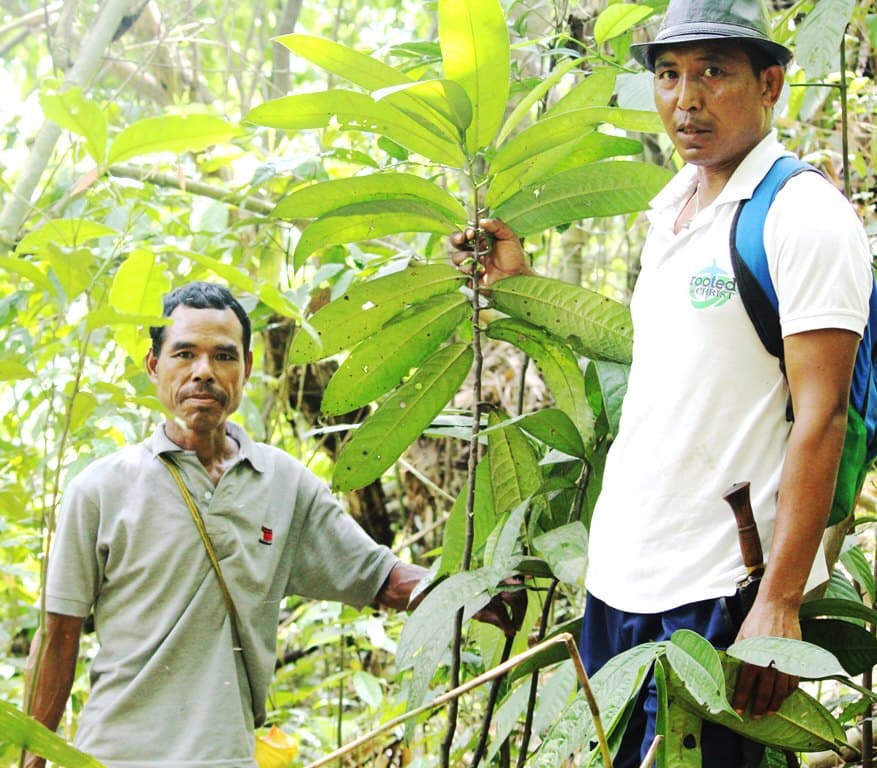Nagaland University researchers carry out first comprehensive scientific study on Goniothalamus simonsii, an endangered medicinal plant.
Share

DIMAPUR — Nagaland University (NU) researchers have partnered with Assam Down Town University to carry out the first comprehensive scientific study on Goniothalamus simonsii Hook. f. Thoms., an endangered and endemic medicinal plant found in Meghalaya’s forests.
Long used by indigenous communities to treat gastrointestinal complications, throat irritation, typhoid fever, and malaria, this plant had never before been studied for its scientific or pharmacological potential, the NU stated in a press release.
The study provides scientific validation for the plant’s traditional use and reveals that Goniothalamus simonsii is a rich source of bioactive phytochemicals with potent antioxidant, antimicrobial, and anticancer activities.
Using advanced analytical tools and computational modelling, the team demonstrated how natural compounds from this species interact with cancer-related proteins, offering valuable leads for the development of new, nature-based therapeutic drugs.
The research was led by Dr. Mayur Mausoom Phukan, Assistant Professor in the Department of Forestry at Nagaland University, with research scholar Samson Rosly Sangma. The findings were published during October 2025 in Chemistry and Biodiversity (https://doi.org/10.1002/cbdv.202501513), a peer-reviewed journal publishing research on the chemical aspects of biological diversity, including natural products, chemical ecology, and molecular studies of living organisms.
The paper was co-authored by Samson Rosly Sangma, Dr. Mayur Mausoom Phukan, Dr. Dhrubajyoti Gogoi (Assam Down Town University), Dr. Pranay Punj Pankaj (Nagaland University), and Vahshi Chongloi, research scholar (Nagaland University).
Speaking about this research, Prof. Jagadish K Patnaik, Vice Chancellor of Nagaland University, said, “Through this study, our researchers are not only contributing to the conservation and understanding of a rare plant species but are also helping to bridge the gap between traditional knowledge and modern science.”
Elaborating on the research, Dr. Phukan said, “This study bridges traditional knowledge with modern science at a crucial time when antibiotic resistance, chronic illnesses, and the side effects of synthetic drugs continue to strain healthcare systems.
“Our findings reaffirm that India’s rich biodiversity holds untapped potential for modern drug discovery. Goniothalamus simonsii not only offers pharmacological promise but also underscores the urgent need to conserve such endangered species.”
The study identified multiple bioactive compounds that exhibit promising biological properties, including antioxidant, anti-inflammatory, ant diabetic, antimicrobial, and anticancer effects. Notably, extracts from different parts of G. simonsii showed strong ant proliferative activity against colon cancer cells in laboratory tests, suggesting its potential as a natural source of anti-cancer agents, the release stated.
Highlighting the unique aspects of this research, Rosly Sangma said, “What makes this research particularly significant is that Goniothalamus simonsii is an exceptionally rare species, with its population declining alarmingly and now confined to only a few natural habitats.
This decline is largely attributed to the limited awareness of its medicinal importance among local communities. Listed as ‘Endangered’ by the International Union for Conservation of Nature (IUCN), this remarkable plant now faces an urgent need for focused conservation efforts. By generating robust scientific data, we hope that our work will encourage conservation and cultivation initiatives for this rare plant, ensuring its sustainable use and protection in the wild.”
Beyond its immediate medicinal implications, this study represents a model for how traditional ethnomedicinal knowledge can be combined with modern biotechnological and computational methods to unlock new possibilities for drug discovery. It also reflects India’s growing emphasis on using indigenous biodiversity as a foundation for affordable, accessible healthcare innovations.
Moving forward, the researchers plan to conduct in vivo and clinical studies to validate these findings further and explore the plant’s potential as a component of future phytopharmaceutical formulations.
“This research reinforces the connection between traditional wisdom, biodiversity, and sustainable health solutions,” the release added.